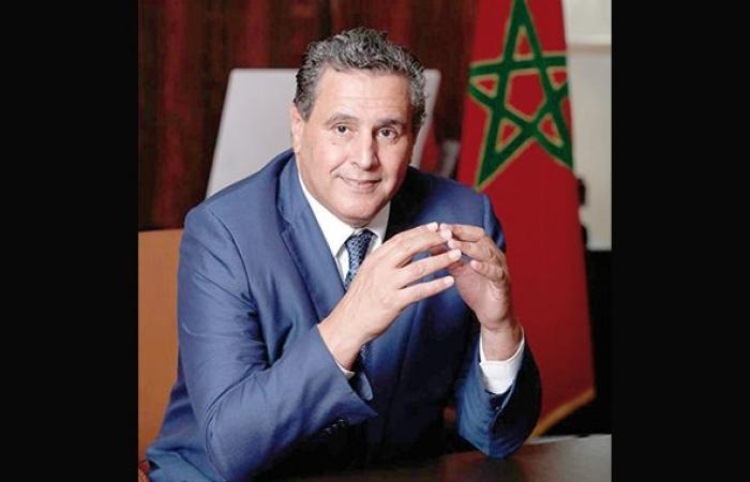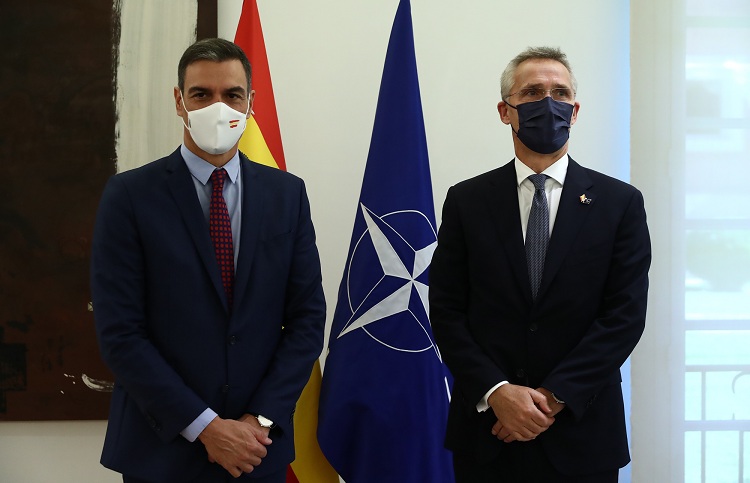The Diplomat
The Spanish government yesterday “cordially” congratulated Morocco’s new government, which will not have Islamist ministers for the first time in a decade and in which Nasser Bourita will remain at the head of the Foreign Ministry.
“The Government of Spain cordially congratulates the new Government of Morocco appointed by H.M. King Mohammed VI and presided over by the head of government, Aziz Akhannouch, following the legislative elections last September 8,” the Foreign Ministry said in a statement.
“Spain looks forward to working with the new Moroccan government to adapt our strategic partnership to the height of shared opportunities and challenges, on the basis of trust, respect and mutual benefit,” Pedro Sánchez’s Executive continued. “Morocco is a strategic partner and a neighboring and friendly country with which Spain wishes to continue developing a model and fruitful cooperation in multiple areas, contributing to regional stability and prosperity,” it concluded.
The new Moroccan government will be presided over by Aziz Akhannouch (former Minister of Agriculture and the second richest man in Morocco after the King) and will be made up of three parties: the liberal National Grouping of Independents (RNI, winner of the elections) and the Authenticity and Modernity Party (PAM) and the historic nationalist Istiqlal party (PI). Therefore, the Executive will not have Islamist ministers, following the collapse of the Justice and Development Party (PJD) in the elections. Apart from this, it will keep Nasser Bourita, the minister who has managed with a firm hand the current diplomatic crisis with Spain and the rapprochement of his country with Israel in exchange for the recognition of Moroccan sovereignty in Western Sahara by the United States, in the post of Foreign Minister.
On September 21, Foreign Minister José Manuel Albares held his first conversation with Bourita since the outbreak of the bilateral crisis, a telephone conversation in which the two ministers agreed to hold “a face-to-face meeting in the near future”. The diplomatic crisis, the most serious in many years, broke out last April 18 as a result of the alleged irregular entry into Spain of the Polisario Front leader, Brahim Ghali, who was transferred from Zaragoza to a hospital in Logroño after contracting COVID-19. Rabat’s indignation resulted in a massive and uncontrolled entry of immigrants into Ceuta with the complicity of the Moroccan authorities, as well as a call for consultations of the Moroccan ambassador in Madrid and a whole series of public accusations against Spain.
“All the signals we receive from Morocco are good”
Although, in principle, the change of Prime Minister does not seem a determining element in the future of relations with Spain, the proximity of Aziz Akhannouch to the Royal Palace may make things less complicated than when the Government was headed by moderate Islamists, before whom the King has always been wary.
The tension has been slightly defused in recent months, especially after King Mohamed VI publicly announced last August 21 the start of a reconciliation process to end the crisis with Spain. One of the first elements that could be the opening of this new stage of relations would be the return to Madrid of the Moroccan ambassador, Karima Benyaich, who was recalled for consultations after Spain welcomed Ghali. Some media in the neighboring country announced some time ago an imminent arrival of the ambassador, but this has not taken place and several sources consider that Mohamed VI could decide to ask for the approval of another person, among other reasons, because Karima Benyaich maintained a position of great hardness towards Spain when the crisis took place.
Another event that would give visibility to the Spanish-Moroccan reconciliation would be a possible visit to Rabat of Albares, chosen last July by the President of the Government, Pedro Sanchez, to replace Arancha González Laya, whom the Moroccans considered the main responsible for the incident with Ghali.
Last Wednesday, Albares told the Spanish press in Paris that Spain was “waiting” for the new government in Morocco to try to resume the rapprochement towards this “great friend of Spain”. “What we want is a strategic relationship with Morocco even more strengthened than before,” he continued. “The King of Morocco, in his speech on August 21, made it very clear that he personally oversees – and that is a lot for us – the dialogue between Morocco and Spain and that he wants that relationship to be based on trust, on mutual respect, on mutual benefit, and the President of the Government responded to him with similar words,” Albares recalled. “I believe that, at the moment, all the signals we are receiving from Morocco are good and we are on that path, on the path of building an even more solid relationship,” he concluded.
Marlaska defends Rabat
In this climate of reconciliation, yesterday the head of the Interior Ministry, Fernando Grande-Marlaska, defended Morocco, on his arrival at a meeting of interior ministers in Luxembourg, when asked how to respond to the instrumentalisation of migration that some countries such as Belarus and Morocco have recently carried out to put pressure on the EU-27.
Grande-Marlaska ruled out that Rabat, which the EU warned when it allowed the uncontrolled passage of migrants to Ceuta, is a neighbour that uses migration management to put pressure on the EU. “I do not share those conclusions about Morocco”, he said.







